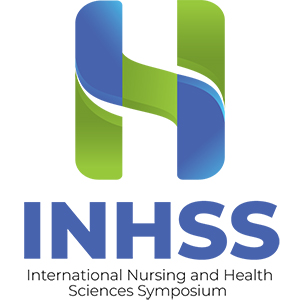Experience of nurses using the basic nursing science in performing nursing care for patients at RSUD Dr. Soedomo Trenggalek, Indonesia

All claims expressed in this article are solely those of the authors and do not necessarily represent those of their affiliated organizations, or those of the publisher, the editors and the reviewers. Any product that may be evaluated in this article or claim that may be made by its manufacturer is not guaranteed or endorsed by the publisher.
Introduction: The provision of humanistic and professional nursing care services needs to be carried out comprehensively, and it must cover patients’ bio-psycho-socio-spiritual aspects. This indicates nurses have to integrate all the basic nursing science, including physiology, anatomy, pharmacology, and pathophysiology, while carrying out their duties. This integration helps to provide the best care for their patients, but they often uncertain about the basic science approach to use. Therefore, this study aimsto explore the experience of nurses using basic nursing science in caring for patients with chronic diseases.
Design and Methods: In-depth interviews were conducted with 5 nurses working in chronic disease wards for at least 5 years. Each respondent was then interviewed using a self-constructed questionnaire.
Results: All respondents agreed that basic nursing science is important in providing quality healthcare services. Furthermore, six themes were identified using the thematic analysis, namely (1) the process of collecting patient data, which was more focused and organized; (2) required for establishing the nursing diagnosis; (3) useful for determining the nursing care plan; (4) it is a basis for implementing nursing actions; (5) provides a basis for monitoring and follow-up; (6) and teamwork between health personnel is more effective.
Conclusions: Based on the interview results, nurses need knowledge and skills in basic nursing science while caring for patients with chronic diseases. Furthermore, basic nursing sciences lay the foundation for nurses while assessing patients, diagnosing, planning the care, implementing nursing actions, evaluating patients’ condition, and collaborating with other health personnel.
Law of the Republic of Indonesia Number 38 of 2014 concerning Nursing. Law of the Republic of Indonesia Number 38 of 2014 concerning Nursing. 2014.
Estetika N, Noraliyatun J. Pelaksanaan Asuhan Keperawatan Spiritual di Suatu Rumah Sakit Banda Aceh. [Implementation of Spiritual Nursing Care in a Banda Aceh Hospital.] J Ilm Mhs Fak Keperawatan. 2016;1:1-9
Sharoff L. Holistic Nursing in the Genetic/Genomic Era. J Holist Nurs 2016;34:146–53. DOI: https://doi.org/10.1177/0898010115587401
Eggert J. Genetics and Genomics in Oncology Nursing: What Does Every Nurse Need to Know? Nurs Clin North Am 2017;52:1–25. DOI: https://doi.org/10.1016/j.cnur.2016.11.001
Wood AF, Chandler C, Connolly S, et al. Designing and developing core physiology learning outcomes for preregistration nursing education curriculum. Adv Physiol Educ 2020;44:464–74. DOI: https://doi.org/10.1152/advan.00139.2019
Romero-Reveron R. Human anatomy in the generation Z’s medical studies. MOJ Anat Physiol 2020;7:12–3. DOI: https://doi.org/10.15406/mojap.2020.07.00281
Madigan N. The importance of pharmacology in nursing. Health Times. 2021. Accessed 2021 Oct 15. Available from: https://healthtimes.com.au/hub/pharmacology/71/guidance/nm/the-importance-of-pharmacology-in-nursing/2756
Idemyor V. Genomic medicine: Health care issues and the unresolved ethical and social dilemmas. Am J Ther 2012;21:548–53. DOI: https://doi.org/10.1097/MJT.0b013e3182583bd1
Mazzotta CP. Biomedical approaches to care and their influence on point of care nurses: a scoping review. J Nurs Educ Pract 2016;6:93–101. DOI: https://doi.org/10.5430/jnep.v6n8p93
Berman A, Snyder S, Frandsen G. Kozier & Erb’s Fundamental of Nursing Concepts, Process, and Practice. Tenth Edit. New Jersey: Pearson Education, Inc; 2016.
Islamy LOS, Sulima S. Kualitas Pelayanan Keperawatan di Rumah Sakit Umum Daerah (RSUD) Kota Baubau. [Quality of Nursing Services at the Regional General Hospital (RSUD) in Baubau City.] J Kesehat Manarang 2020;6:20. DOI: https://doi.org/10.33490/jkm.v6i1.153
Atania N. Pengkajian Data Sebagai Dasar Fondasi Proses Keperawatan. [Data Assessment as the Foundation of the Nursing Process - Preprint]. Open Science Framework. 2020. Accessed 2021 Oct 15. Available from: https://doi.org/10.31219/osf.io/jk3h4 DOI: https://doi.org/10.31219/osf.io/jk3h4
de Barros JR, Herrerias GSP, Ramdeen M, et al. Nursing Process in a Patient with Crohn’s Disease: Case Report. Open J Nurs 2021;11:258–65. DOI: https://doi.org/10.4236/ojn.2021.114023
Apriyani H. Identifikasi Pengkajian Keperawatan Pada Pasien Di Ruang Paru Sebuah Rumah Sakit. [Identification of Nursing Studies in Patients in the Pulmonary Room of a Hospital.] J Keperawatan 2018;XI:107–11.
Akhu-Zaheya L, Al-Maaitah R, Bany Hani S. Quality of nursing documentation: Paper-based health records versus electronic-based health records. J Clin Nurs 2018;27:e578–89. DOI: https://doi.org/10.1111/jocn.14097
Wang J, Yue P, Huang J, et al. Nursing Intervention on the Compliance of Hemodialysis Patients with End-Stage Renal Disease: A Meta-Analysis. Blood Purif 2018;45:102–9. DOI: https://doi.org/10.1159/000484924
Roy C. Key Issues in Nursing Theory: Developments, Challenges, and Future Directions. Nurs Res 2018;67:81–92. DOI: https://doi.org/10.1097/NNR.0000000000000266
Sulistyawati W, Susmiati S. The Implementation Of 3S (SDKI, SIKI, SLKI) to The Quality Of Nursing Care Documentation In Hospital’s Inpatient Rooms. Str J Ilm Kesehat 2020;9:1323–8. DOI: https://doi.org/10.30994/sjik.v9i2.468
Yildirim B, Ozkahraman S. Critical thinking in nursing process and education. Int J Humanit Soc Sci 2011;1:257–62.
Luo J, Dong X, Hu J. Effect of nursing intervention via a chatting tool on the rehabilitation of patients after Total hip Arthroplasty. J Orthop Surg Res 2019;14:1–6. DOI: https://doi.org/10.1186/s13018-019-1483-4
Naseri-Salahshour V, Sajadi M, Abedi A, et al. Reflexology as an adjunctive nursing intervention for management of nausea in hemodialysis patients: A randomized clinical trial. Complement Ther Clin Pract 2019;36:29–33. DOI: https://doi.org/10.1016/j.ctcp.2019.04.006
Cui C, Wang L-X, Li Q, et al. ting a Pain Management Nursing Protocol for Orthopaedic Surgical Patients: Results from a PAIN OUT Project. J Clin Nurs 2018;27:1684–91. DOI: https://doi.org/10.1111/jocn.14224
Nursalam N, Widodo H, Wahyuni ED, et al. Development of perioperative care instruments based on SDKI SLKI SIKI in operating room. Syst Rev Pharm 2020;11:1029–35.
Bastian ND, Munoz D, Ventura M. A Mixed-Methods Research Framework for Healthcare Process Improvement. J Pediatr Nurs 2016;31:e39–51. DOI: https://doi.org/10.1016/j.pedn.2015.09.003
Hariyati RTS, Kobayashi N, Sahar J. Simplicity and Completeness of Nursing Process Satisfaction Using Nursing Management Information System at the Public Health Service “X” Indonesia. Intertaional J caring Sci 2018;11:1034–42.
Copyright (c) 2023 the Author(s)

This work is licensed under a Creative Commons Attribution-NonCommercial 4.0 International License.


 https://doi.org/10.4081/hls.2023.11213
https://doi.org/10.4081/hls.2023.11213



